Search Results
Showing results 1 to 20 of 84
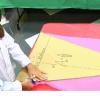
Full of Hot Air: Hot Air Balloon Building
Source Institutions
In this activity, learners create a model of a hot air balloon using tissue paper and a hairdryer. Educators can use this activity to introduce learners to density and its role in why things float.
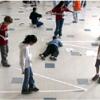
FlyBy Math: Distance-Rate-Time Problems in Air Traffic Control
Source Institutions
In this small-group activity, learners assume the roles of pilots, air traffic controllers, and NASA scientists to solve five Air Traffic Control (ATC) problems.

I Can't Take the Pressure!
Learners develop an understanding of air pressure in two different activities.
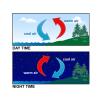
Turning the Air Upside Down: Spinning Snakes
Learners color and cut out a spiral-shaped snake. When they hang their snake over a radiator, the snake spins.

Fun with Bernoulli
Learners conduct four simple experiments to demonstrate the effects of air pressure.

A Merry-Go-Round for Dirty Air
Learners build a model of a pollution control device--a cyclone. A cyclone works by whirling the polluted air in a circle and accumulating particles on the edges of the container.
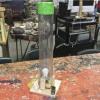
Wind Tube
Source Institutions
In this activity, learners explore moving air and the physics of lift and drag by constructing homemade wind tunnels.

Bernoulli's Blowout
Source Institutions
In this quick activity (page 1 of PDF under SciGirls Activity: Kites), learners will witness firsthand the effects of Bernoulli’s Principle by capturing a ping pong ball in the stream of air created b
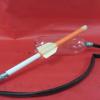
Stomp Rocket
Source Institutions
In this activity, learners build rockets and shoot them into the air by stomping on the plastic bottle launchers.
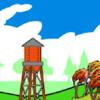
The Great Balloon Race
Source Institutions
In this online Flash game, learners take to the skies in a hot air balloon and are challenged to beat other balloonists' times to the finish line without crashing.
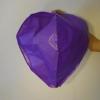
Hot Air Balloon
Source Institutions
In this activity, learners build a hot air balloon using just a few sheets of tissue paper and a hair dryer.

Weather Vane
Source Institutions
In this meteorology activity, learners build weather vanes using straws, paperclips, and cardstock.

Zoomers
Source Institutions
In this activity, learners build their own rockets from paper, coffee stirrers, and tape. Learners discover that when anything flies, air pressure is always involved.

Uncanny Motion
Source Institutions
In this activity, learners explore motion and airflow by setting two aluminum cans on their side and blowing air in-between them.
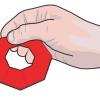
Origami Flying Disk
Source Institutions
In this three-part activity, learners use paper to explore Bernoulli's Principle — fast-moving air has lower pressure than non-moving air.
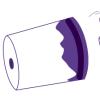
Air Cannon
Source Institutions
In this activity (page 1 of PDF under SciGirls Activity: Forecasting), learners will construct an air cannon by cutting a hole in the bottom of a bucket and stretching a garbage bag over the other end

Wind Tunnel
Source Institutions
Scientists use enormous wind tunnels to test the design of planes, helicopters, even the Space Shuttle.
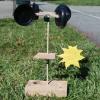
Weather Vane and Anemometer
Source Institutions
In this meteorology activity, learners construct simple devices to measure the direction and speed of wind.
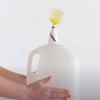
Rocket Mice
Source Institutions
In this activity, learners will make a model rocket to test the phrase "what goes up must come down." Learners will power their rockets with air pressure, and soon discover the effects of air resistan

Balloon Drive
Source Institutions
In this challenge, learners make a helium balloon hover in one spot and then move it through an obstacle course using air currents.
